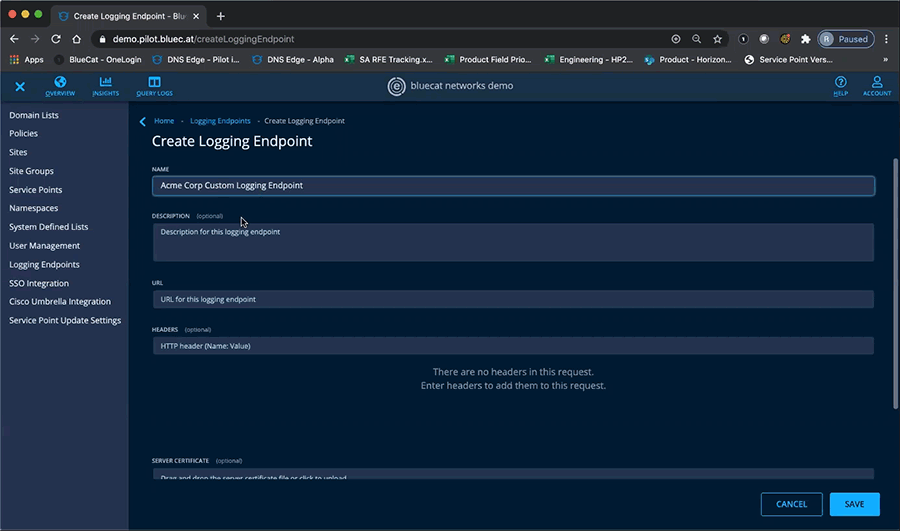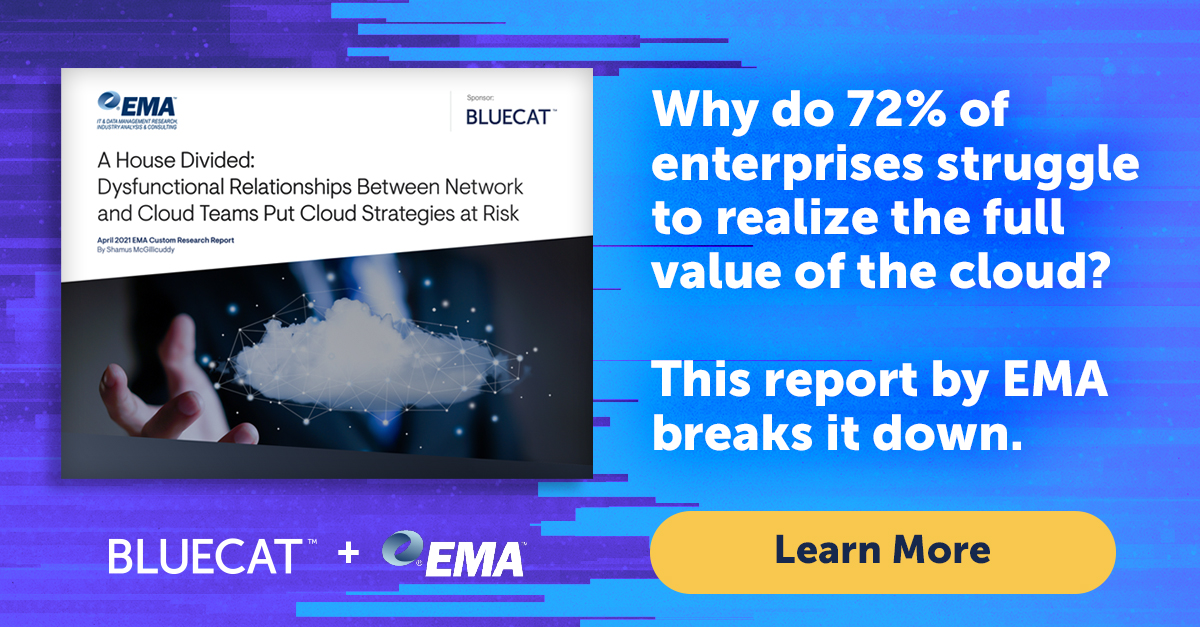Should you store DNS data in the cloud or data center?
There are tradeoffs to where you store DNS data. Whether in the data center or cloud, BlueCat’s custom logging feature can help you better manage it.

As organizations gain access to seemingly limitless amounts of data, they must mitigate the business and financial risks that come with it. There is a bevy of challenges to address related to storage, data protection, privacy controls, and data threats.
Security and risk management leaders are establishing internal security requirements for where data can be stored. Their intent is to reduce critical data loss and risks to privacy.
However, it can be an internal battle to strike a balance between the competing requirements of protection and speed. Friction can result.
In the case of enterprise DNS data, organizations want the flexibility to both:
- Create redundancies between the data center and vendor-supplied cloud; and
- Exclusively store DNS data in the data center or private cloud.
This post will explore weighing the risks of storing DNS data in the cloud. Furthermore, it will show how BlueCat’s custom logging feature can help network teams better manage DNS data regardless of where it is stored.
Weighing the risks of cloud storage
Organizations must weigh the opportunity cost of exclusively storing DNS data in a local data center. By doing so, they forgo the agility of cloud-based threat protection for core networking solutions.
When deciding where to store DNS data, Gartner suggests basing cloud decisions around five public cloud risk domains:
- Agility: ability to support unanticipated future needs
- Compliance: regulatory and other legal requirements
- Availability: service disruptions and data loss
- Supplier: changes in the cloud provider business model of viability
- Security: confidentiality and data control
BlueCat’s custom logging can help with DNS data storage
Regardless of the strategy for data storage, customers can use BlueCat custom logging to give network teams control over where DNS data is stored and how it’s transported. And you can do so while still adhering to enterprise security requirements. That means real flexibility to log your query data wherever you want: in the cloud, a local data lake, or both.
Below is a demo of creating a logging endpoint in BlueCat Edge:

For additional information on how to configure or set up these new features, please refer to the help section in your DNS Edge Cloud Console.





